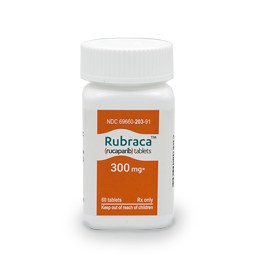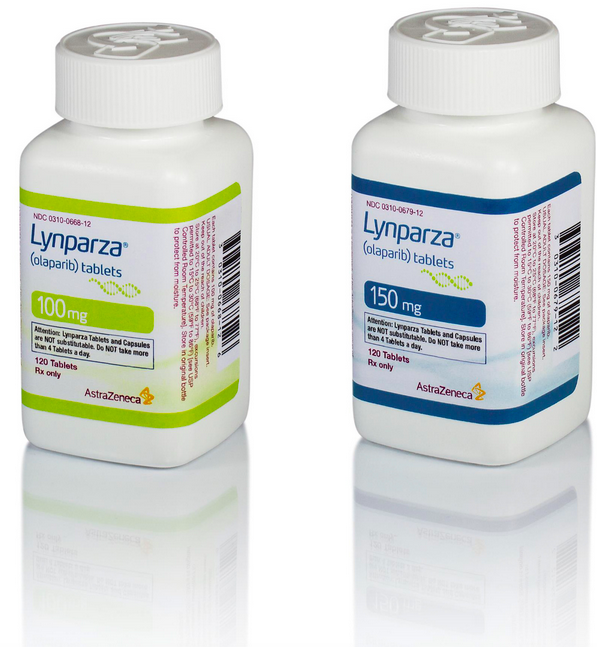Rubraca (rucaparib) vs Lynparza (olaparib)
Rubraca (rucaparib) vs Lynparza (olaparib)
Rubraca (rucaparib) and Lynparza (olaparib) are both PARP inhibitors used in the treatment of certain types of cancers, including ovarian cancer and are taken orally. Rubraca is approved for patients with BRCA-mutated ovarian cancer who have been treated with two or more chemotherapies, while Lynparza has a broader range of approvals, including for maintenance treatment of ovarian cancer regardless of BRCA status, as well as for BRCA-mutated breast cancer and metastatic castration-resistant prostate cancer. The choice between Rubraca and Lynparza should be made in consultation with a healthcare provider, considering the specific cancer diagnosis, genetic makeup, previous treatments, potential side effects, and overall health of the patient.
Difference between Rubraca and Lynparza
| Metric | Rubraca (rucaparib) | Lynparza (olaparib) |
|---|---|---|
| Generic name | Rucaparib | Olaparib |
| Indications | Ovarian cancer, fallopian tube cancer, primary peritoneal cancer, prostate cancer | Ovarian cancer, fallopian tube cancer, primary peritoneal cancer, breast cancer, pancreatic cancer, prostate cancer |
| Mechanism of action | Poly (ADP-ribose) polymerase (PARP) inhibitor | Poly (ADP-ribose) polymerase (PARP) inhibitor |
| Brand names | Rubraca | Lynparza |
| Administrative route | Oral | Oral |
| Side effects | Nausea, fatigue, vomiting, anemia, constipation, decreased appetite, diarrhea, dysgeusia, elevated liver enzymes, neutropenia, thrombocytopenia | Nausea, fatigue, anemia, vomiting, diarrhea, neutropenia, leukopenia, headache, dysgeusia, increased creatinine, cough, dyspnea |
| Contraindications | Hypersensitivity to rucaparib or any component of the formulation | Hypersensitivity to olaparib or any component of the formulation, breastfeeding |
| Drug class | PARP inhibitor | PARP inhibitor |
| Manufacturer | Clovis Oncology | AstraZeneca and Merck & Co. (MSD outside the US and Canada) |
Efficacy
Rubraca (rucaparib) Efficacy in Gynecological Cancer
Rubraca (rucaparib) is a poly (ADP-ribose) polymerase (PARP) inhibitor indicated for the treatment of certain types of gynecological cancers, including ovarian cancer, fallopian tube cancer, and primary peritoneal cancer. It is particularly effective in patients with a deleterious BRCA mutation (germline and/or somatic) associated with these cancers. Clinical trials have demonstrated that rucaparib significantly prolongs progression-free survival (PFS) compared to placebo in patients with recurrent ovarian cancer who have responded to platinum-based chemotherapy. The efficacy of Rubraca as a maintenance treatment has been established, providing a valuable option for patients with these challenging and often recurrent cancers.
Lynparza (olaparib) Efficacy in Gynecological Cancer
Lynparza (olaparib) is another PARP inhibitor with proven efficacy in the treatment of gynecological cancers, specifically in patients with advanced ovarian cancer, fallopian tube cancer, or primary peritoneal cancer who have a BRCA mutation. Olaparib has been shown to be effective as both a maintenance treatment following the response to first-line platinum-based chemotherapy and in the treatment of BRCA-mutated advanced ovarian cancer following three or more lines of chemotherapy. In clinical studies, olaparib has demonstrated a significant improvement in progression-free survival compared to standard therapy or placebo.
Comparative Efficacy in Gynecological Cancers
While both Rubraca and Lynparza are effective in the treatment of gynecological cancers with BRCA mutations, the choice between them may depend on individual patient factors, prior treatments, and specific indications approved by regulatory agencies. Both drugs have been a part of landmark clinical trials that have established the role of PARP inhibitors in the management of BRCA-mutated gynecological cancers. The efficacy of these drugs has led to their adoption as standard-of-care options in certain patient populations.
Conclusion
In conclusion, Rubraca and Lynparza have both shown efficacy in the treatment of gynecological cancers, particularly in patients with BRCA mutations. They represent a significant advancement in the management of ovarian, fallopian tube, and primary peritoneal cancers, offering hope for improved outcomes. As research continues, the potential for these drugs to benefit a broader range of patients with gynecological cancers is an area of active investigation. However, it is important to note that the efficacy of these medications can vary based on individual patient characteristics and disease progression, and their use should be guided by a healthcare professional.
Regulatory Agency Approvals
Rubraca
-
European Medical Agency (EMA), European Union

-
Food and Drug Administration (FDA), USA

Lynparza
-
European Medical Agency (EMA), European Union

-
Food and Drug Administration (FDA), USA

-
Health Canada

-
Therapeutic Goods Administration (TGA), Australia

-
Medsafe (NZ)

Access Rubraca or Lynparza today
If Rubraca or Lynparza are not approved or available in your country (e.g. due to supply issues), you can access them via Everyone.org.
How it works

Make an enquiry
Choose the medicine you want to buy, answer a couple of questions, and upload your prescription to speed things up. We’ll get back to you within 24 hours.


Make an enquiry
Choose the medicine you want to buy, answer a couple of questions, and upload your prescription to speed things up. We’ll get back to you within 24 hours.


Breeze through the paperwork
We'll guide you through the required documents for importing unapproved medicine, ensuring you have all the necessary information.


Get a personalized quote
We’ll prepare a quote for you, including medicine costs and any shipping, administrative, or import fees that may apply.


Receive your medicine
Accept the quote and we’ll handle the rest - sourcing and safely delivering your medicine.

Some text on this page has been automatically generated. Speak to your physician before you start a new treatment or medication.
Let's talk
If you have any questions, call us or send us a message through WhatsApp or email:
Contact us




